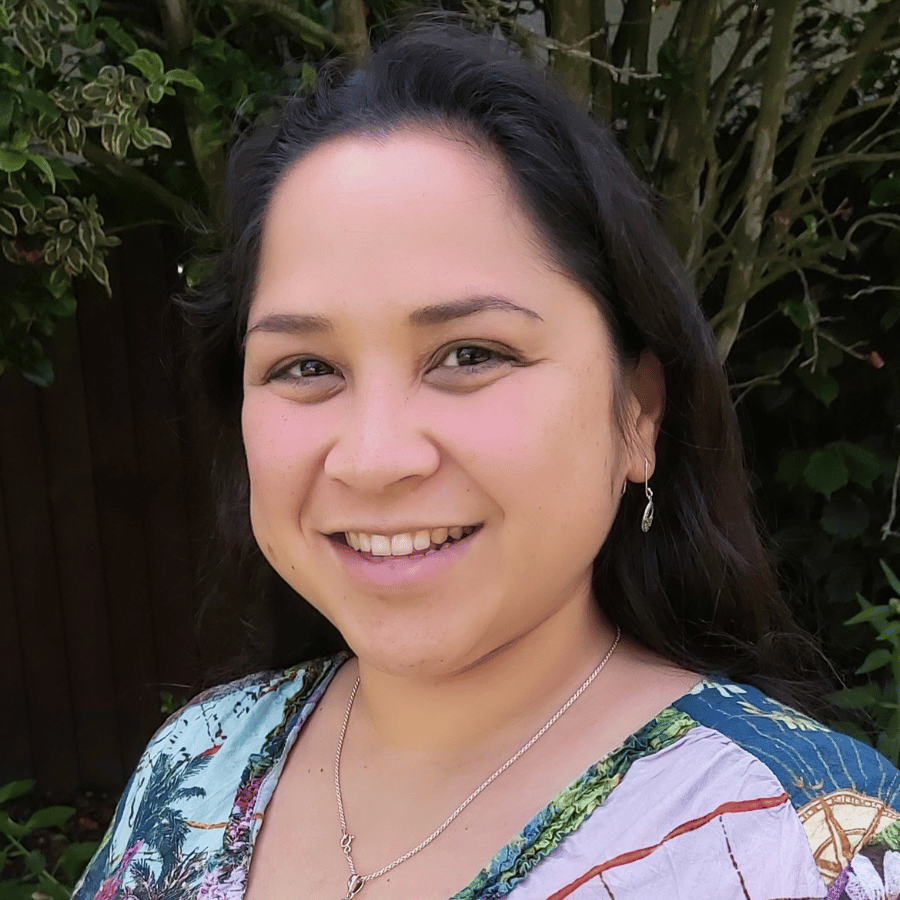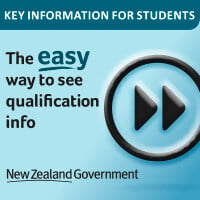Price
Domestic learners
$1,198* per 15 point course
International learners
$4,738* per 15 point course
*Price is approximate and subject to change based on elective course selection. Fees outlined are based on the 2026 fee schedule and are subject to revision each year. Prices include GST where applicable. Non-tuition fees, such as the Student Services Levy (SSL), will also apply.
Qualification
PGDipPMgt
120 points
Duration tooltip: Duration is approximate and subject to course availability
2 years part-time
Entry times
13 July 2026
February 2027
July 2027
2028
Overview
Deepen your expertise and prepare for senior project management roles in today’s fast-paced, project-driven world. The PGDipPMgt is designed for professionals who want to advance their career in project management with an industry-relevant, university qualification.
Through this fully online programme, you’ll gain advanced skills in stakeholder management, project planning and execution, project governance, systems thinking, decision-making and procurement. Strengthen your ability to lead complex projects, navigate uncertainty, and influence outcomes at scale.
Whether you're aiming to step into more senior project management roles — like Programme or Portfolio Manager — or preparing to pursue a Master of Project Management, this qualification gives you the depth and flexibility to grow in the direction that suits you.
With flexible study options, you can choose to exit early with a Postgraduate Certificate in Project Management if things change, or credit your courses towards a Master of Project Management to take your learning further.
Grow as you go — credit your courses to advance your career
With flexible study options, you can choose to graduate with a Postgraduate Diploma in Project Management, exit early with a Postgraduate Certificate in Project Management, or take your learning further by crediting your courses towards a Master of Project Management. You don't have to decide now — choose what's right for you as you grow and learn online!
Requirements
To ensure that our learners have the necessary background and experience to succeed, you must have:
- Completed an Aotearoa New Zealand bachelor's degree, or equivalent*, with a minimum grade average of B or higher; and
- At least three years of relevant professional experience in a projectised environment.
- This means applicants should have worked in roles where the primary mode of work involved projects — temporary, goal-driven initiatives with defined outcomes, timelines, and resource allocation. Work experience in environments where ongoing operations dominate (e.g., routine service delivery or purely operational roles) may not meet this criterion unless it includes substantial responsibility for managing or contributing to projects. Applicants should clearly describe their project-based responsibilities in their CV and cover letter, including details of the types of projects involved, their role, and the outcomes.
*Applicants with a graduate certificate or graduate diploma in project management may also be eligible.
If English is your additional language, you are also required to meet UC's English language requirements.
Unsure about your suitability?
As part of our application process, your eligibility will be assessed by our project management academic team to make sure that your academic and/or professional background meets the entry criteria. Unfortunately our Tuihono UC | UC Online team cannot confirm your eligibility before your application is submitted, beyond referring you to the requirements above. We are happy to help answer any general questions you have about the programme or online learning, however. You can get in touch with us here.
Structure
The 120-point Postgraduate Diploma in Project Management can be studied part-time over two years, and must be completed within four years.
Time commitment
Unless otherwise stated, Tuihono UC | UC Online learners study across terms, rather than semesters. We have four terms per year which consist of nine-weeks of study (including a one-week study break), followed by a two-week period of marking and feedback.
Part-time learners complete one 15-point course every term, requiring approximately 18.5 hours of study per week. Study time includes taking in course material, reflection time and writing assessments. Our courses are flexible, enabling you to plan your study around your other commitments.
Upcoming term dates
Our current nine-week learning dates can be found below (please note: these dates exclude our two-week period of marking and feedback).
- 2 February – 5 April 2026
- Study break: 2 – 8 March 2026
- 27 April - 28 June 2026
- Study break: 25 – 31 May 2026
- 13 July - 13 September 2026
- Study break: 10 – 16 August 2026
- 28 September - 29 November 2026
- Study break: 26 October - 1 November 2026
Please note: these dates are provisional and may be subject to change.
Begin

Begin your project management journey with four core courses in project management. You'll explore how to engage with stakeholders, lead high-performing teams, and advanced project planning from execution to closeout.
Courses taken: Fundamentals of Project Management and Advanced Stakeholder Engagement (PMGT601), Inclusive Leadership and Team Development (PMGT604), Advanced Project Planning (PMGT602), and Managing Project Execution and Closeout (PMGT603).
Graduation option: we get it — plans change! At the end of these courses, you can choose to exit early with a Postgraduate Certificate in Project Management.
Diploma
Advance your project leadership skills through four flexible project management courses. Learn how to think critically, make ethical use of AI, align projects with business goals, understand project finances, manage procurement, and lead complex negotiations.
Courses taken: Critical and Systems Thinking in the Age of AI (PMGT605), Strategic Project Management and Business Alignment (PMGT606), Project Procurement, Negotiation and Contract Management (PMGT607) and one elective course.
Master
Keen to keep learning? Graduates can apply to credit 120 points towards a Master of Project Management! This flexible degree adds just one more 15-point course to prepare you for completing an in-depth work or research-based capstone project. The work-based capstone project allows you to showcase your advanced project managment skills through a real-world problem; whereas the research-based capstone project gives you a pathway to apply for a PhD afterwards, if you want to continue your learning journey!
Courses taken to graduate with an MPM: Practical Inquiry (PMGT608), and Work-based Project Management Capstone Project OR Research Methods (PMGT609), and Research-based Project Capstone Project (PMGT680).
What you'll study
You’ll complete eight 15-point courses (a mix of NZQF Level 8 and Level 9) for the Postgraduate Diploma in Project Management. Want to take your learning further? You may be eligible to credit your courses towards a Master of Project Management.
Description
This course introduces the foundational concepts of project management, covering its history, evolution, and key standards such as Project Management Body & Knowledge (PMBOK) and the ISO 21500 series. Students will explore various project management methodologies, including Waterfall methodology, Agile project management, and Hybrid approaches, and gain an understanding of project and product lifecycles. Emphasis is placed on effective stakeholder engagement, detailing methods for identifying, analysing, and managing stakeholders across government, private organisations, and non-profits. The course highlights culturally appropriate engagement, particularly with Māori and Pacific communities, incorporating values and guidelines for effective collaboration with iwi. By the end of this course, students will be equipped with advanced project management skills, ethical and professional responsibility, and the ability to engage stakeholders effectively, making them valuable assets in any work environment.
Learning Outcomes
On completion of the course, it is expected that learners will be able to:
- Critically evaluate the history and evolution of project management, including the development and application of key standards such as PMBOK and ISO 21500 series.
- Evaluate the effectiveness of different project management methodologies, including Waterfall methodology, Agile project management, and Hybrid approaches, in various project contexts.
- Apply culturally appropriate stakeholder engagement strategies by incorporating Māori and Pacific knowledge and values.
- Develop advanced strategies for identifying and analysing stakeholders, ensuring comprehensive stakeholder management across diverse project environments.
- Formulate and implement advanced stakeholder engagement and communication plans.
Description
The Inclusive Leadership and Team Development course prepares students to lead high-performing, diverse teams by exploring advanced leadership theories, styles, and motivation techniques. It emphasises strategies for working with teams that are diverse in culture, gender, neurodiversity, and more, recognising and valuing the unique strengths each member brings. Students will develop skills in team-building, emotional intelligence, and conflict resolution, with a strong focus on inclusivity. Additionally, the course incorporates Māori and Pacific perspectives on leadership and team development, fostering cultural competency essential for New Zealand’s diverse work environments.
Learning Outcomes
On completion of the course, it is expected that learners will be able to:
- Critically evaluate and apply Māori and Pacific perspectives on leadership and team development to demonstrate cultural competency and effective team leadership in New Zealand’s workplaces.
- Critically evaluate advanced leadership theories and styles.
- Develop strategies for motivating and leading high-performance teams, including those that are diverse in culture, gender, and neurodiversity.
- Develop and apply advanced team development skills, including emotional intelligence and conflict resolution techniques, to foster effective and inclusive team dynamics.
Description
The course provides students with comprehensive skills in defining project scope, creating detailed work breakdown structures, and assigning responsibilities. Students learn advanced estimation and scheduling techniques, including practical use of software tools to develop accurate project plans. The course also covers resource, procurement and quality management planning. Detailed risk management planning is addressed to ensure project success and alignment with stakeholder expectations. Through hands-on exercises and real-world applications, students are prepared to manage complex projects effectively in any industry.
Learning Outcomes
On completion of the course, it is expected that learners will be able to:
- Critically evaluate and develop comprehensive project scope statements, work breakdown structures (WBS), WBS dictionaries and responsibility allocation matrices to ensure clear project deliverables and responsibilities.
- Critically evaluate and apply advanced project scheduling techniques and cost estimation methods, ensuring accurate and realistic project timelines and budgets.
- Implement software tools for project scheduling and cost estimation to enhance project planning accuracy and efficiency.
- Develop comprehensive resource, procurement, and quality management plans to ensure the availability and management of necessary project resources while maintaining project standards and stakeholder satisfaction.
- Design risk management plans in alignment with ISO 31000 standards to identify, assess, and mitigate project risks effectively.
Description
This course equips students with advanced skills for effectively managing project execution and closeout. It covers resource and communication monitoring, risk management, and performance control to ensure projects stay on track. Students will learn earned value management for progress assessment and strategies for clear reporting to stakeholders. The course also focuses on project knowledge management, capturing lessons learned, and promoting organisational learning to enhance future projects.
Learning Outcomes
On completion of the course, it is expected that learners will be able to:
- Develop and implement advanced strategies for monitoring and controlling project resources, communications, performance, risks, opportunities, and quality to ensure project objectives are met.
- Apply various project management techniques to assess project progress.
- Develop effective communication strategies for reporting performance to stakeholders.
- Design and execute comprehensive project knowledge management processes, including capturing lessons learned, promoting continuous improvement, and managing administrative closure and project handover.
Description
This course focuses on developing critical and systems thinking skills alongside understanding AI and digital ethics. Students will explore core principles, techniques, and applications of critical and systems thinking to enhance decision-making and problem-solving in complex project environments. They will also examine the ethical implications of AI in project management, learning to use AI responsibly and effectively. Practical exercises in prompt development for AI tools will prepare students to leverage AI with clarity, accountability, and ethical integrity.
Learning Outcomes
On completion of the course, it is expected that learners will be able to:
- Critically evaluate and apply core principles and techniques of critical thinking to enhance decision-making and problem-solving in complex project environments.
- Utilise tools and techniques for defining problems and applying critical thinking methodologies effectively.
- Analyse and apply core principles and methodologies of systems thinking to understand and address complex project challenges.
- Implement tools and techniques for systems thinking to develop comprehensive solutions in project management.
- Examine the ethical implications of AI in project management and develop strategies for the responsible use of AI.
- Develop and refine prompts for AI tools to ensure clarity, accountability, and ethical responsibility in their application.
Description
This course equips learners with highly specialised and advanced knowledge of strategic project management, with a critical focus on aligning projects with organisational goals and enterprise value creation. Students will critically evaluate and independently apply advanced portfolio and programme management frameworks to assess organisational project maturity and design governance systems such as Project Management Offices (PMOs), that enable enterprise-wide delivery. Learners will demonstrate mastery of financial principles, including revenue and margin recognition, financial forecasting, and performance measurement, and applying these within strategic decision-making contexts. Emphasis is placed on the development of robust, evidence-based business cases, benefits realisation plans, and project charters that reflect both organisational strategy and stakeholder expectations. Through independent inquiry and critical engagement with complex, real-world scenarios, students will lead the strategic design and oversight of project initiatives, demonstrating autonomy, ethical reasoning, and reflective practice. Learners will be expected to exercise leadership within their professional domain, applying strategic tools and frameworks to deliver sustainable and measurable organisational value.
Learning Outcomes
On completion of the course, it is expected that learners will be able to:
- Critically evaluate and implement strategies for aligning projects with organisational objectives through portfolio and programme management, the establishment of PMOs, and the application of project maturity models, including considerations for sustainability and the triple bottom line.
- Develop financial management skills, including budgeting, forecasting, and financial reporting, and evaluate financial performance using profitability, liquidity, and efficiency ratios.
- Conduct cost-benefit analyses for technology investments and understand the implications of financial decisions on projects, including the integration of ESG criteria and the distinction between operational and capital expenditure.
- Formulate comprehensive benefits management plans, develop robust business cases and project charters, and establish clear success and acceptance criteria to ensure project alignment with organisational goals.
- Implement effective project governance practices within the context of the organisation to support project success.
Description
This course provides learners with highly specialised knowledge and advanced capabilities in strategic procurement and contract management within complex project environments. Students will critically evaluate and select appropriate contract types, manage solicitation processes, and conduct bid evaluations with an emphasis on fostering strong supplier relationships, including those governed by New Zealand-specific legislation and contracting practices. The course explores advanced contract administration techniques to ensure legal compliance and ethical integrity, while managing risk and liability on both local and global scales. Students will independently apply innovative approaches and emerging technologies to enhance procurement systems and improve commercial outcomes. Through the critical application of negotiation theory and practice, learners will develop and implement advanced negotiation strategies, along with effective conflict resolution and dispute management techniques. Students will demonstrate leadership in complex decision-making situations, contributing to the design and governance of procurement strategies that align with organisational and stakeholder priorities. Ethical, sustainable, and evidence-based practice underpins all learning in this course.
Learning Outcomes
On completion of the course, it is expected that learners will be able to:
- Critically evaluate and select appropriate contract types, manage solicitation processes, and conduct bid evaluations to foster strong supplier relationships, with a focus on NZ-specific contracts.
- Develop and implement effective contract administration practices to ensure compliance, manage legal and ethical risks and liabilities on a global scale, and integrate technology and innovation to improve procurement processes.
- Formulate and apply advanced negotiation techniques and strategies, and develop effective conflict resolution and dispute management skills to address challenges in contract and procurement management.
Description
Towards the end of their PGDipPMgt, learners can choose an elective course — full options will be confirmed with enrolled learners.
Our people
The Postgraduate Diploma in Project Management is coordinated by Dr Lulu Barry, with contributions from Honor Clark, Peter Johnston, Iram Mushtaq, Pierre Pienaar, Teresa Poli, Jenny Turner, Sean Whitaker and other industry professionals and Te Whare Wananga o Waitaha | University of Canterbury academics.

Dr Lulu Barry
Director of Engineering and Management Programmes | University of Canterbury
Lulu Barry, PhD, MPM, BEng, DTLT, PMP, is the Director of Engineering and Management Programmes at the University of Canterbury. She oversees the delivery and development of postgraduate programmes that integrate engineering and management disciplines, ensuring students receive a high-quality, industry-relevant education. In this role, she is responsible for programme oversight, curriculum development, and course facilitation.
With a PhD in Project Management, a Master of Project Management (MPM), a Bachelor of Engineering (BEng), and a Diploma in Tertiary Learning and Teaching (DTLT), Lulu brings a strong academic and professional foundation to the field. A PMP-certified project management professional, she specialises in project management, programme development, and industry collaboration, with a focus on innovative teaching methodologies and student engagement in online learning. An advocate for industry engagement, she has built extensive connections to align academic programmes with real-world needs. She also actively contributes to the Christchurch PMINZ branch and integrates academic research with practical applications to prepare students for leadership roles in engineering, project management, and beyond.

Honor Eimi Columbus
Independent Consultant | Honor Columbus Consulting
Honor Columbus, BEng, MMIL, is an independent consultant and infrastructure advisor based in Ōtautahi Christchurch. She contributes subject-matter expertise to the University of Canterbury's Master of Project Management programme, with a focus on stakeholder engagement in complex infrastructure environments. With a background in structural engineering, Honor holds a Bachelors of Civil Engineering (BEng) and a Masters in Māori and Indigenous Leadership (MMIL). Honor brings over 14 years’ experience delivering infrastructure, housing, and education projects across Aotearoa New Zealand and the Pacific. A qualified professional engineer, she has held senior advisory roles in the Ministry of Education and Ministry of Social Development, and served on boards in the public and not-for-profit sectors.
Her core strengths lie in bridging technical, policy, and community perspectives to support inclusive, outcomes-focused decision-making. She has a strong foundation in strategic advisory, project delivery, and governance, with particular expertise in culturally responsive engagement, especially with Pacific communities. Honor is passionate about equipping emerging professionals with the tools to navigate stakeholder complexity in real-world contexts. She is a Member of Engineering New Zealand (MEngNZ), the Institute of Directors (MInstD), and Chapter Zero, and has contributed to vocational education reform through her work with ConCOVE Tūhura.

Peter Johnston
Strategy, Leadership and Transformation Consultant
Peter Johnston (Bachelor of Arts, Master of Arts and Advanced Diploma in Industrial / Organisational Psychology) works with founders, CEOs and senior leaders to improve business performance through becoming more customer centric, growing leadership and teaming capability, and driving an execution focus throughout all organisational layers. He has specialised in digital transformation and complex capital programme delivery in the public and private sectors.
Having started early in his career doing behavioural science research and writing, Peter has been published with Oxford University Press, Charles C Thomas and various journals and online publications. Peter's working life still resembles an ongoing research project on interesting (and business critical!) topics like trust, influence, power, collaboration and conflict management. He works with all levels of people to influence change - from executives, to seasoned delivery leaders, to project managers just starting out.

Pierre Pienaar
Project Management Content Developer | University of Canterbury
Pierre Pienaar, MSc, B.Sc. (Hons), PGDipSci, is a Project Management content developer at Te Whare Wānanga o Waitaha | University of Canterbury. In this role, he contributes to the design and development of postgraduate courses in project management, helping to create structured and engaging learning content that bridges academic theory and professional practice. With a background in software development, quality assurance, and project management, Pierre has over 18 years of experience in the financial enterprise IT sector. He has worked across predictive and adaptive delivery approaches, applying project management processes while supporting Agile transformation.
Pierre holds a Master of Science in Project Management from the University of Cape Town, a B.Sc. (Hons) Applied Mathematics and Computer Science from the University of Stellenbosch, and a Postgraduate Diploma in Science (Physics) from the University of Canterbury. He is also certified in PMI-ACP, Professional Scrum Master I, and ISTQB CTFL, and is completing the PMP® certification. Pierre is particularly interested in stakeholder engagement, risk management, change management, and supporting professional learners. Alongside his academic work, he contributes as a volunteer project management consultant in the not-for-profit sector, and volunteer with PMI in the Christchurch branch.

Jenny Turner
Neurodiversity & Leadership Consultant & Coach | Human Fabric
Jenny Turner, MBA, BSc (Hons), PMP®, is a Neurodiversity and Leadership Consultant and Coach, and the Director of Human Fabric. In this role, she supports organisations and individuals to understand, embrace, and harness neurodiversity at work. She delivers courses, coaching, and consulting, that provide practical frameworks, upskill managers, and embed processes that enable neurodivergent talent to thrive. Jenny has also pioneered the development of a neuroinclusion assessment framework for organisations, and a Neurodiversity at Work Accreditation.
With a background in engineering, science, and professional services, Jenny holds an MBA from the University of Auckland and a BSc (Hons) in Physical Geography. She brings a strong foundation in strategy, project and change management, and learning & development—shaped by senior roles at Beca where she led delivery practice improvements for a 4,000-person firm. Her credentials include PMP® and Agile certifications, alongside ADHD-informed coaching training. She is especially interested in translating the emerging best practice advice and evidence into practical, neuroaffirming approaches for leaders and teams, bridging research and real-world practice to unlock performance, innovation, and well-being at work.

Sean Whitaker
Project Management Consultant and Teacher
Sean Whitaker is unique in the profession of project management in that he has successfully delivered complex projects in the construction, urban redevelopment, telecommunications, software, IS/IT, business change, and organisational transformation industries. He brings this wealth of project management experience to his project management training and can pass on complex ideas to people in ways that can be understood and applied immediately. Sean has developed, designed, and delivered project management training for adult learners including introductory level, post-graduate tertiary level, and PMP examination preparation.
He is a regular conference speaker and is also the author of several books on project management best practice and how to pass the Project Management Professional (PMP) examination. As a project management consultant, he has had a global career working with some of the world’s leading IT, mining, energy production, space exploration, construction, telecommunications, transport, research, education, mining, and primary production organisations to improve their level of project management proficiency and competency. His consulting approach is based on pragmatic jargon free advice that is appropriate for the client and their immediate needs.
Stay updated
If you’re keen to know more, stay updated on when enrolments open or ask a question, please sign up for updates below.
Cap & minimum enrolment threshold: a minimum number of learners is needed for effective interaction and feedback, while a maximum cap of learners ensures high quality learning and support. If the minimum number of enrolments required for a course isn’t met, or the maximum cap is exceeded, learners will be given the option to defer their study or receive a refund.
FAQ
The Postgraduate Diploma in Project Management (PGDipPMgt) gives you in-depth understanding of advanced project management concepts, focusing on strategic project management, critical and systems thinking, procurement, negotiation, and contract management. These skills are key for advancing into a senior project management role.
Here are some roles you might pursue with a pgd project management:
Project Manager: Plan and deliver projects on time, on budget, and within scope in a range of industries.
Programme Manager: Oversee several connected projects to help organisations achieve long-term goals.
Portfolio Manager: Manage a group of projects and programmes, making sure they align with business priorities.
Risk Manager: Identify and manage risks that could impact project success.
Project Consultant: Offer expert advice to businesses on how to improve their project management practices.
Operations Manager: Manage day-to-day operations and ensure that projects support business needs.
Business Analyst: Understand business requirements and make sure project outcomes support organisational goals.
In short, a PGDipPMgt opens the door to roles in industries like construction, technology, finance, and healthcare. With strong demand for project management skills, this postgraduate diploma can also boost your career opportunities and earning potential.
Graduating from this pgd project management programme won’t automatically certify you as a project manager. However, you’ll gain most of the skills needed to apply for certification through professional bodies like the Project Management Institute (PMI) or the Association for Project Management (APM).
Learners have access to the same support services as on-campus students, including academic advising, technical support, and library resources. There are also great resources for both Canterbury based and remote learners at the UC RecCentre. Learn more here.
Learners also have the support of our Tuihono UC Learner Experience team.
All courses in this online programme are assessed through coursework — there are no exams. Assessments typically include a combination of online quizzes, forums, presentations, group work, case study analyses, practical assignments, and projects.
The overall cost of tuition fees per 15 point course based on the 2026 fee schedule:
- for domestic learners is $1,198* incl GST
- for international learners is $4,738* plus GST if applicable.
Total programme investment for the 120 point programme based on the 2026 fee schedule:
- for domestic learners is $9,584* incl GST
- for international learners is $37,904* plus GST if applicable.
*Please note that the fees are charged on a per year basis and the amount charged reflects the number of courses/points enrolled in the current year. These are based on the 2026 fee structure and subject to revision – you can learn more about the University of Canterbury’s Tuition fee structure here.
Student Services Levy costs
Each year university students around Aotearoa New Zealand are charged a Student Services Levy (SSL) in addition to their tuition fees. All the SSL money collected can only be used for the benefit of students - never for academic or administrative costs.
The SSL is automatically calculated on how many points you enrol in per academic year, capped at a maximum of 150 points. Tuihono UC | UC Online learners are charged a reduced SSL rate, which is 20% of the usual on-campus student levy. This is calculated as $2.06 per academic point in 2026 . You can learn more about the Student Services Levy here, and more about UC Support Services here.
There are a range of options you can use to finance your study, which you can learn more about here.
Whether you need advice finding the right course for you or support with the enrolment process, we’re here to help! Contact our enrolment support team for course information, technical help and enrolment support.
Applications are made online through our Tuihono UC | UC Online website – please sign up for updates to stay in the loop about when applications open.


